Recently it was announced that Formula 1’s TBC third-to-last round of the current 2021 season would be filled by a new event in Qatar, with the Losail International Circuit being chosen as the venue to slot into the vacant position and complete the calendar, which for the second year running, was disrupted by the global COVID-19 pandemic.
Formula 1’s visit to the Middle-Eastern country was being rumoured for some time, and as such, when confirmation finally came through last week, it was little surprise to anyone – even if it forms the final leg of a triple-header, forcing teams to make the almost 12,000-kilometre journey from Sao Paulo to Doha in a matter of days.
What was somewhat more of a surprise was the announcement that Qatar had signed a 10-year deal to remain on the Formula 1 calendar. Following its maiden event this year, it will drop off the schedule in 2022 due to its controversial responsibilities of hosting the FIFA World Cup in November and December 2022 before returning in 2023.
The Middle-East is currently vigorously pushing its way into the sports industry. Some non-F1 events have included heavyweight bouts having taken place in Saudi Arabia (who has also secured a long-term deal on the Formula 1 calendar), and more recently, made Newcastle United one of the richest football teams in the world.

Abu Dhabi has been present on the Formula 1 schedule for over a decade, and is currently dishing out a lot of funds to ensure it will continue to occupy the final race on the calendar, making it the scene of a title showdown should the fight go all the way. Bahrain is a traditional visit too, and seems to be slotting in as the new season-opener.
While under normal circumstances, it would be encouraging to see a region grow and welcome major sporting events, the appalling conditions in which the residents of some of these countries are subject to simply can’t go undiscussed. Since Qatar was awarded the World Cup almost 11 years ago, it is reported that nearly seven thousand, out of its nearly two million current migrant workers, have died in country.
Calls to boycott such events have fallen on deaf ears, with the allure of cash trumping everything. For Formula 1, its push into the region, which has resulted in additional calendar slots, certainly speaks volumes about where the sport is headed.
“We are talking about sport, we are talking about a platform that has the objective of creating fun and unify[ing] people,” Domenicali recently told Sky following the Qatar announcement. “And I think that this is always the case. Sport will help and to enhance the positivity and the right values on each country we are going [to]. Because the spotlight of F1 is so big that you cannot hide.
“Therefore, I think that it’s a sign of making sure that the things that everyone at this level are promising, they will be delivered, because on that we know that we cannot hide anything. This is the reason why that we should take that as a great positive push versus a better world. Because Formula 1, in this specific case, will help to make sure this transition versus a better world will happen sooner.”

But Formula 1 should not be used as a vehicle that pulls a mask over the abuse of human rights issues in these countries; nor should any other sport. ‘Sportswashing’ is a term that has been used frequently in recent years, as these states have invested more and more money into major projects.
Is positive change coming for these places, or are these deals, Formula 1 included, a distraction from what many Western world occupants consider appalling, outdated laws and regulations? The thought of F1 fans not tuning into these races in protest doesn’t seem very realistic, especially given the current ongoing title battle, which has all the makings of one of the most exciting duels in many, many years.
When the sport arrives at Qatar, the fight will be nearing its end, and fans, who have followed the titanic fight since the opening round, will be keen to see how it unfolds. In addition, there is also a worry that the calendar is becoming too much with the insertion of these new events, as it looks to be fast approaching a 25-race year – a disastrous scenario, putting extra stress on the travelling staff, as well as taking away enticement of a grand prix.
Too much of one thing is never healthy.
There’s no doubt there could be some fan backlash when the sport arrives for the race weekend in Qatar and Saudi Arabia later this year. Will it be warranted? Well, people do have the right to protest. Will it change anything?
Probably not…
This opinion article originally appeared in issue 438 of our weekly digital motorsport magazine, Motorsport Monday. Completely free to read with no sign-up necessary, Motorsport Monday is published every Monday morning and is packed full of motorsport content. Check out the latest issue here.




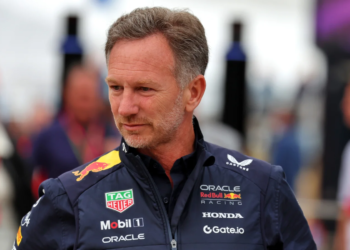
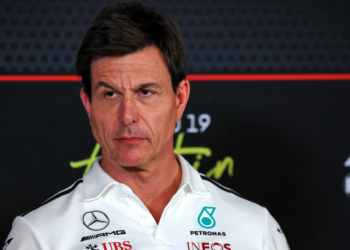
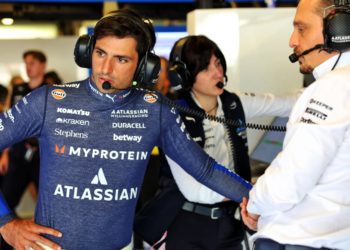
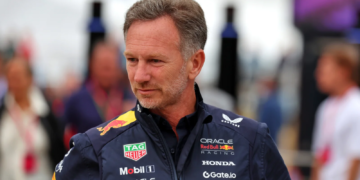
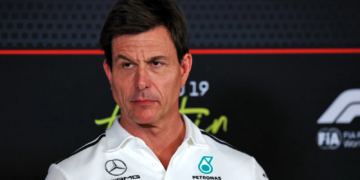
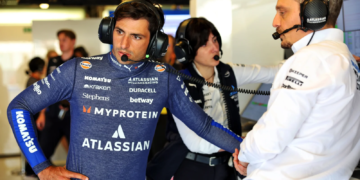
Discussion about this post